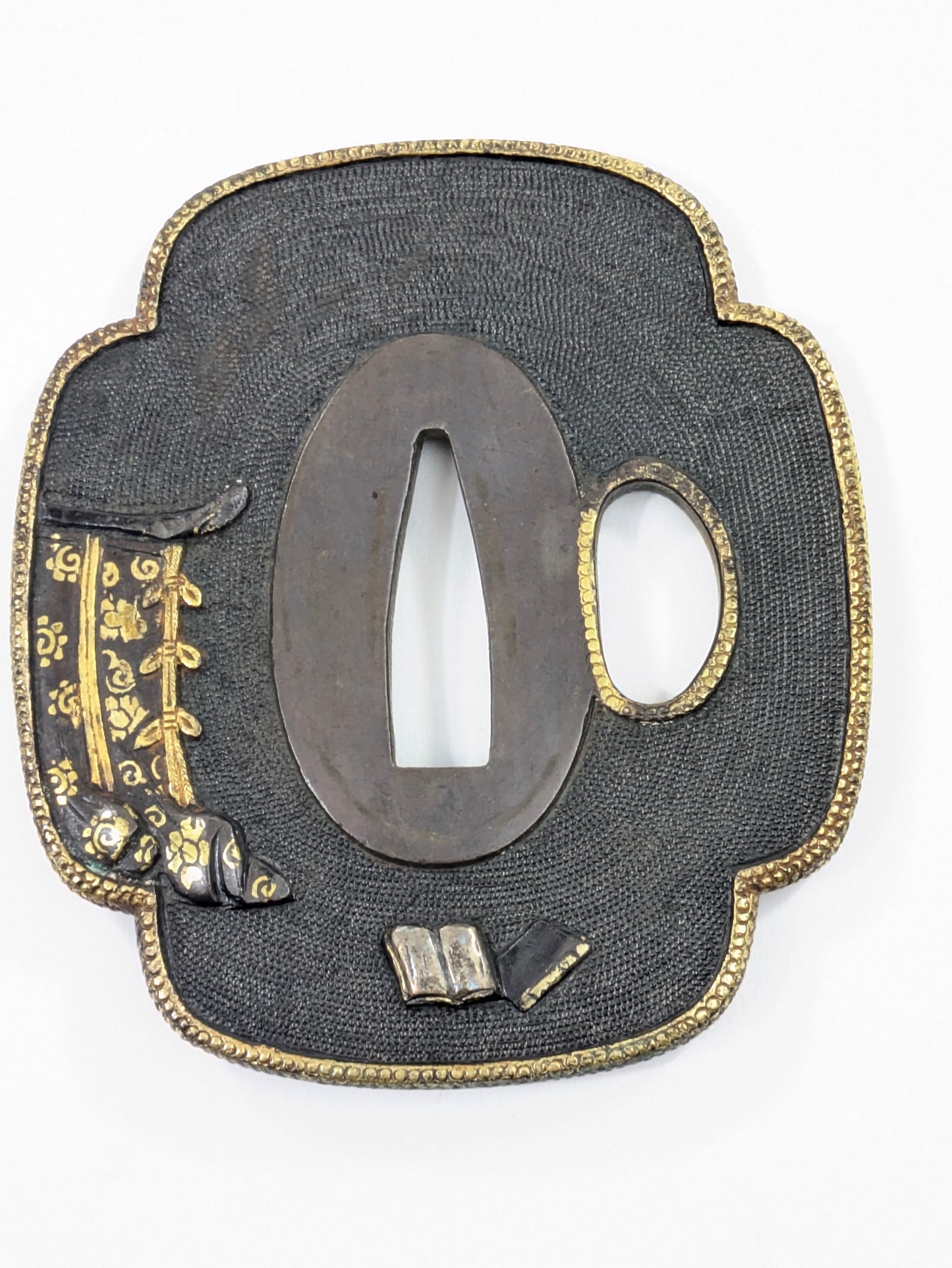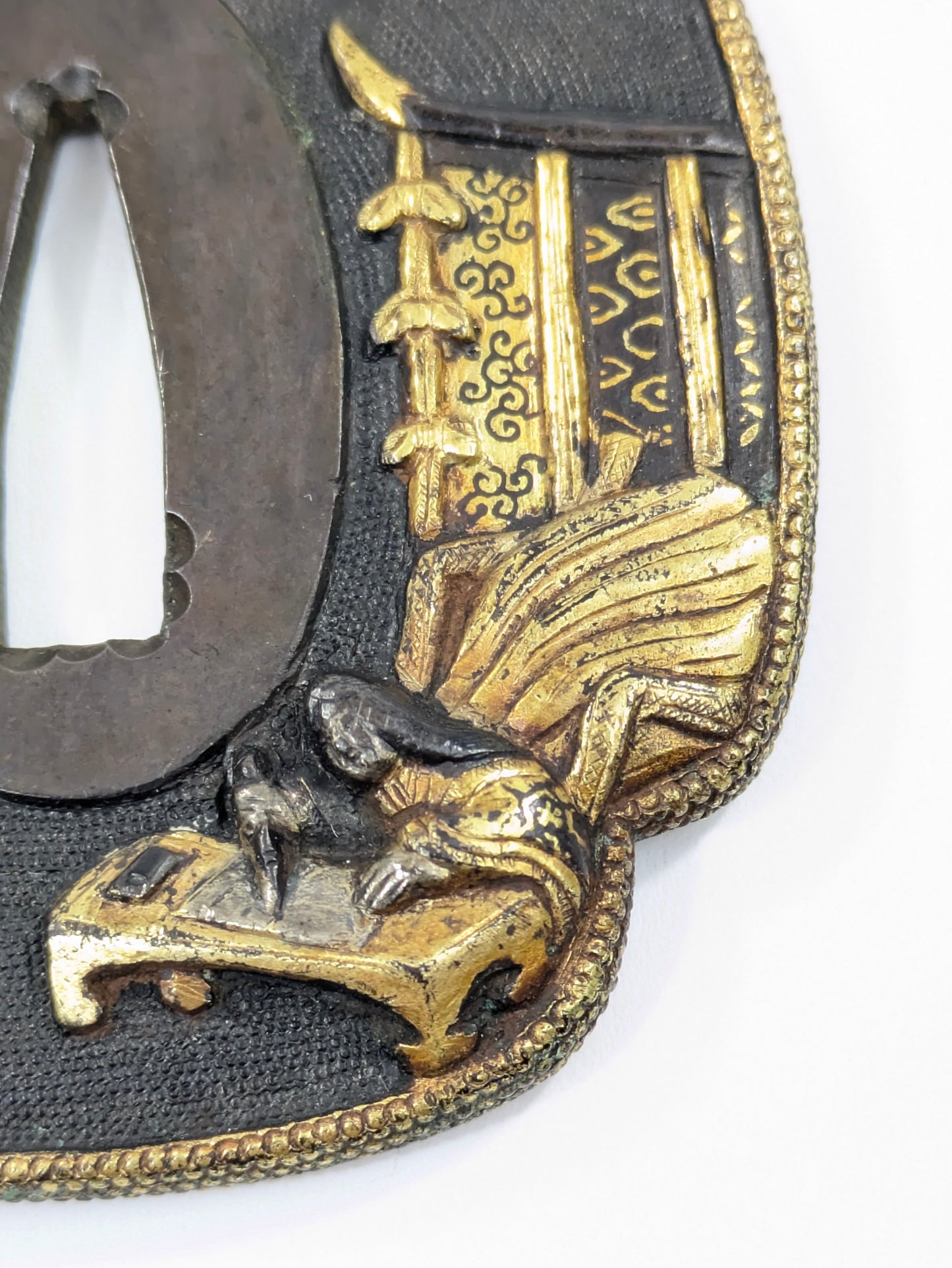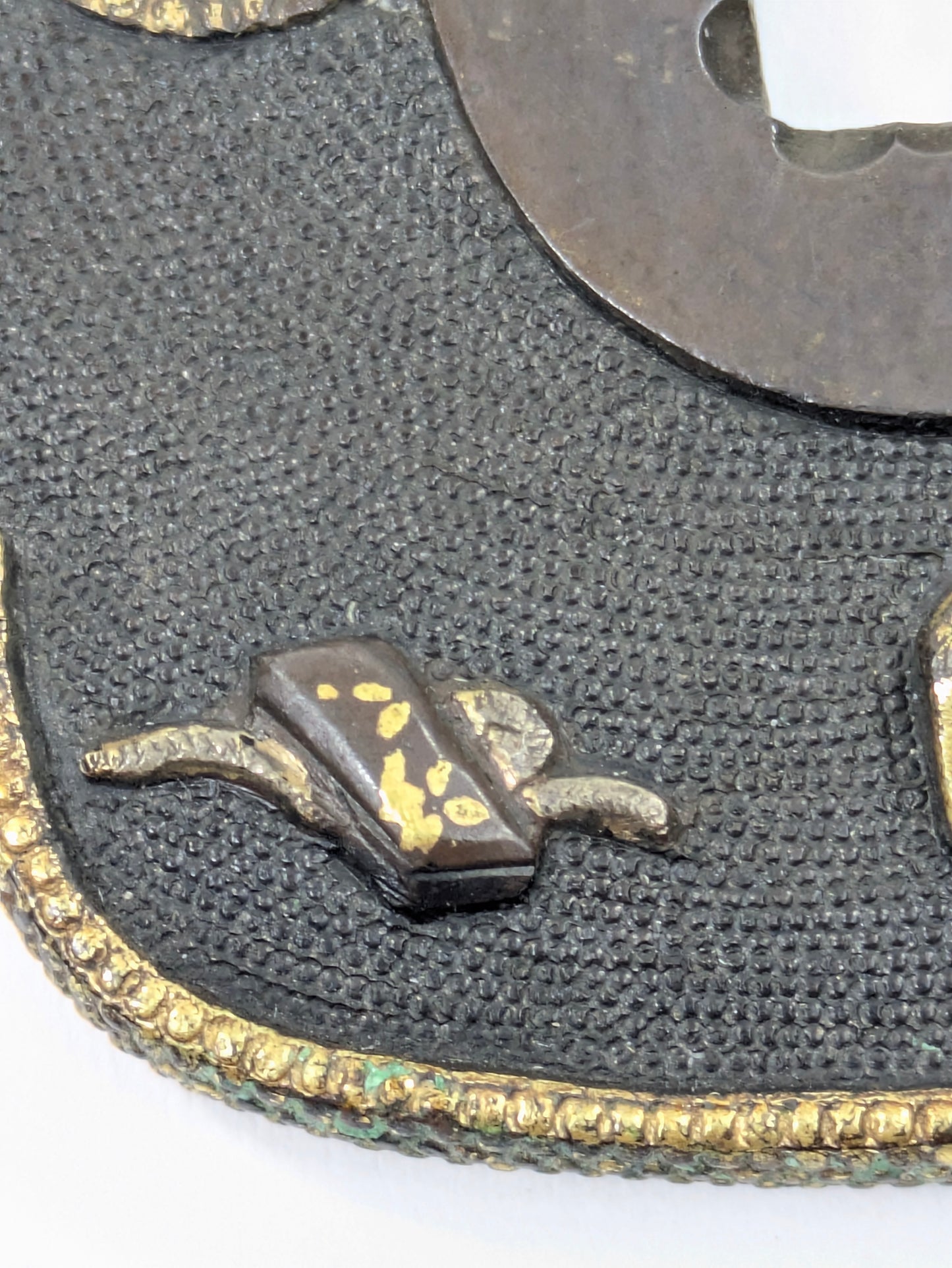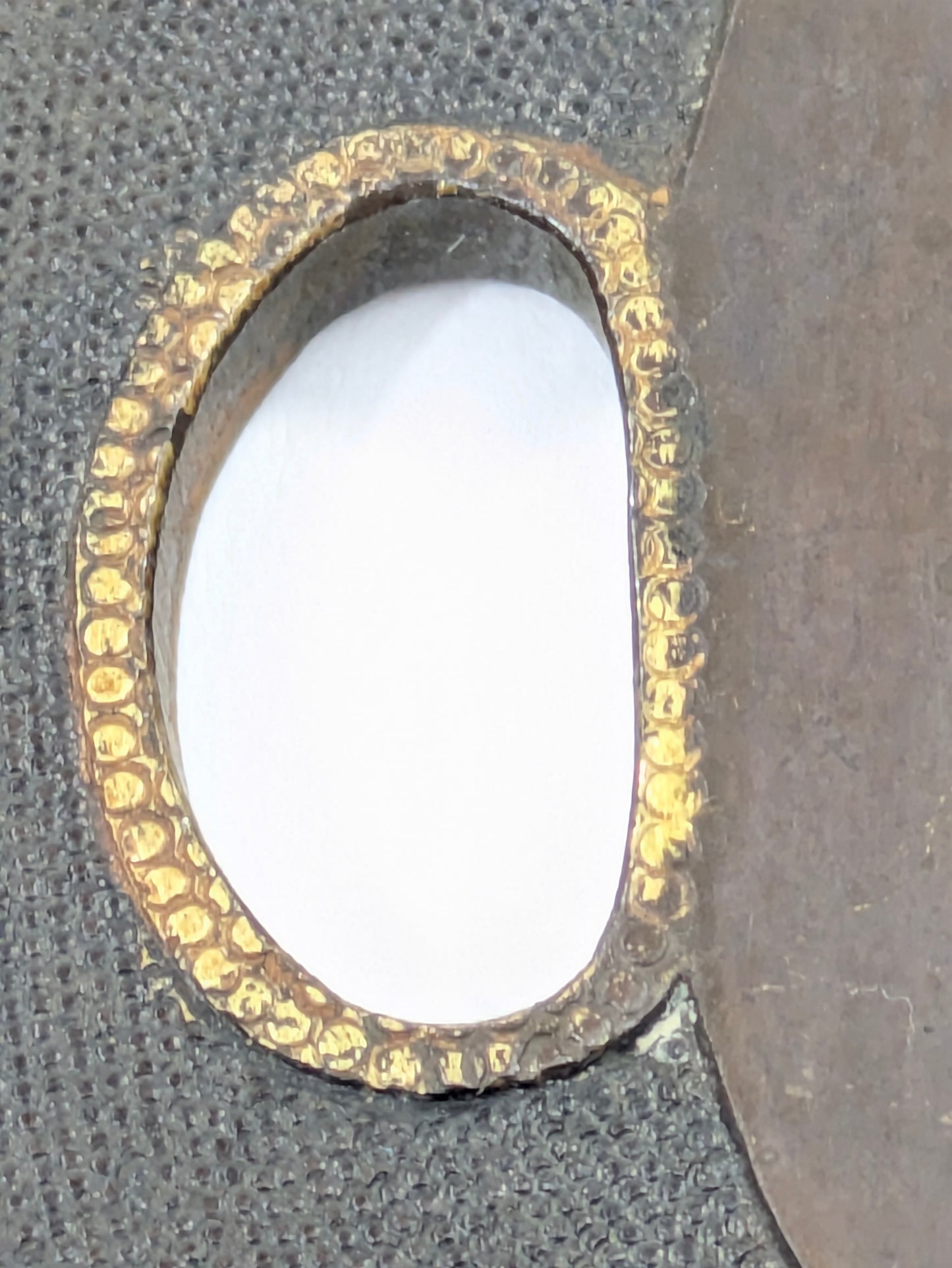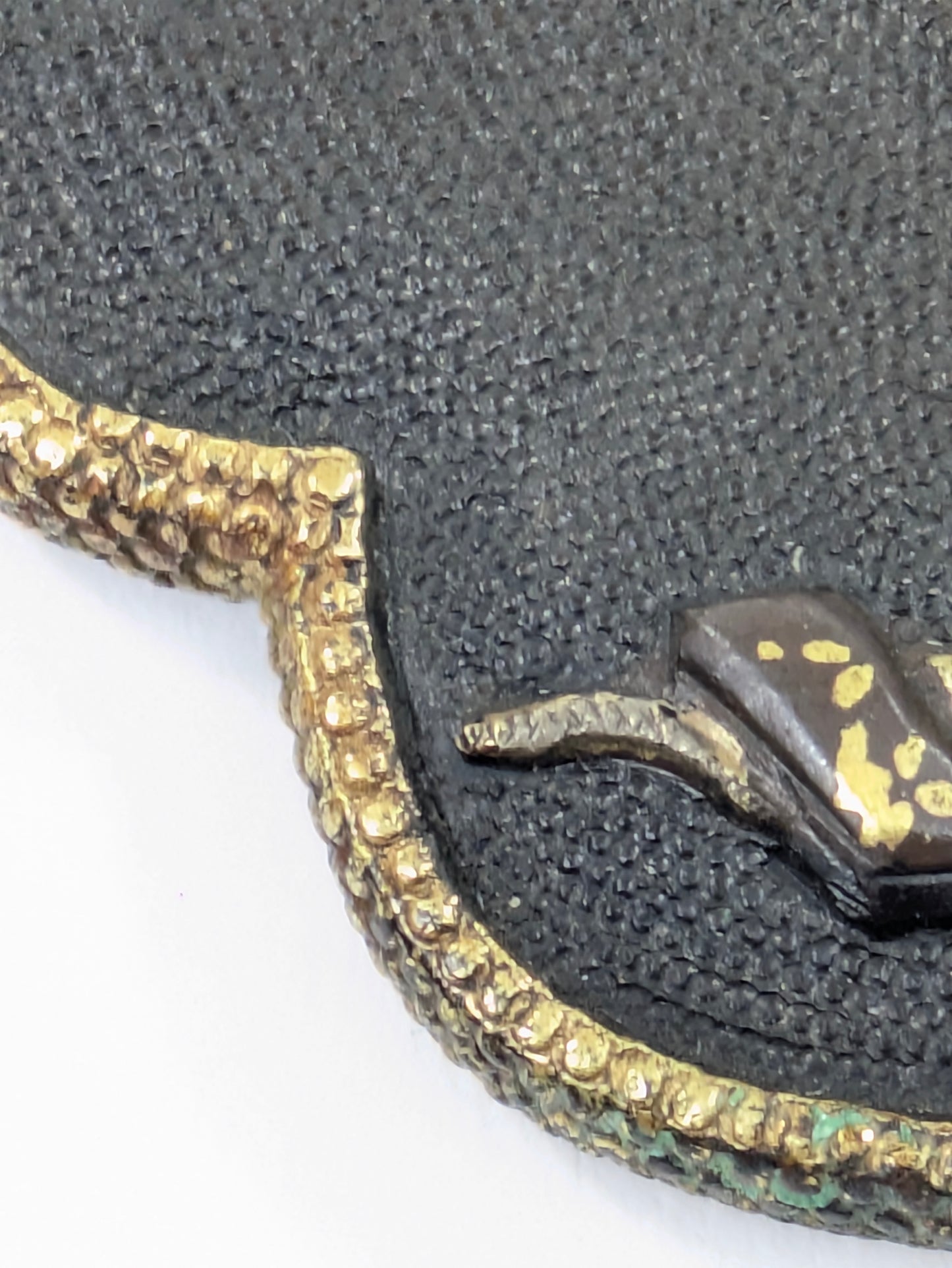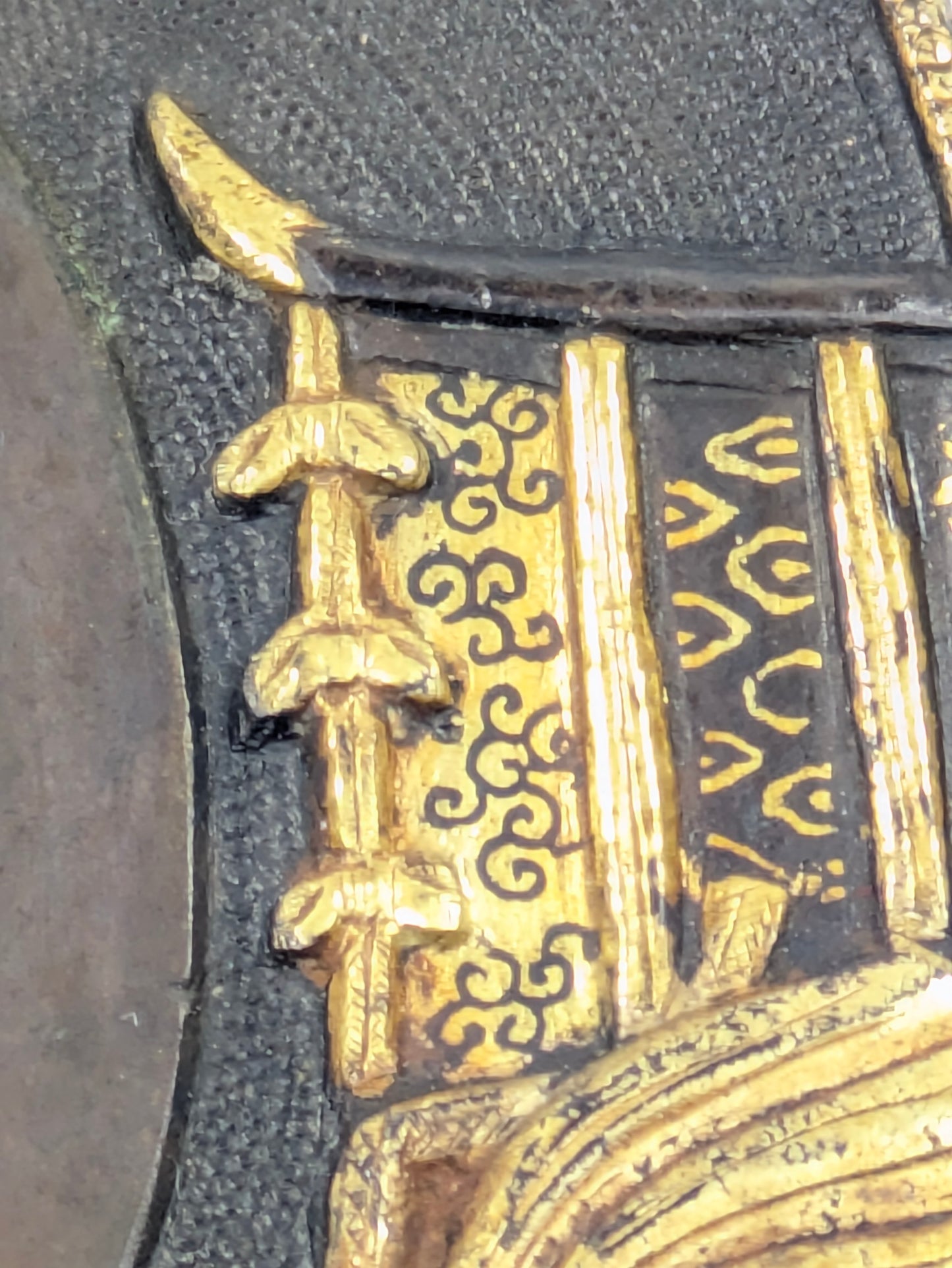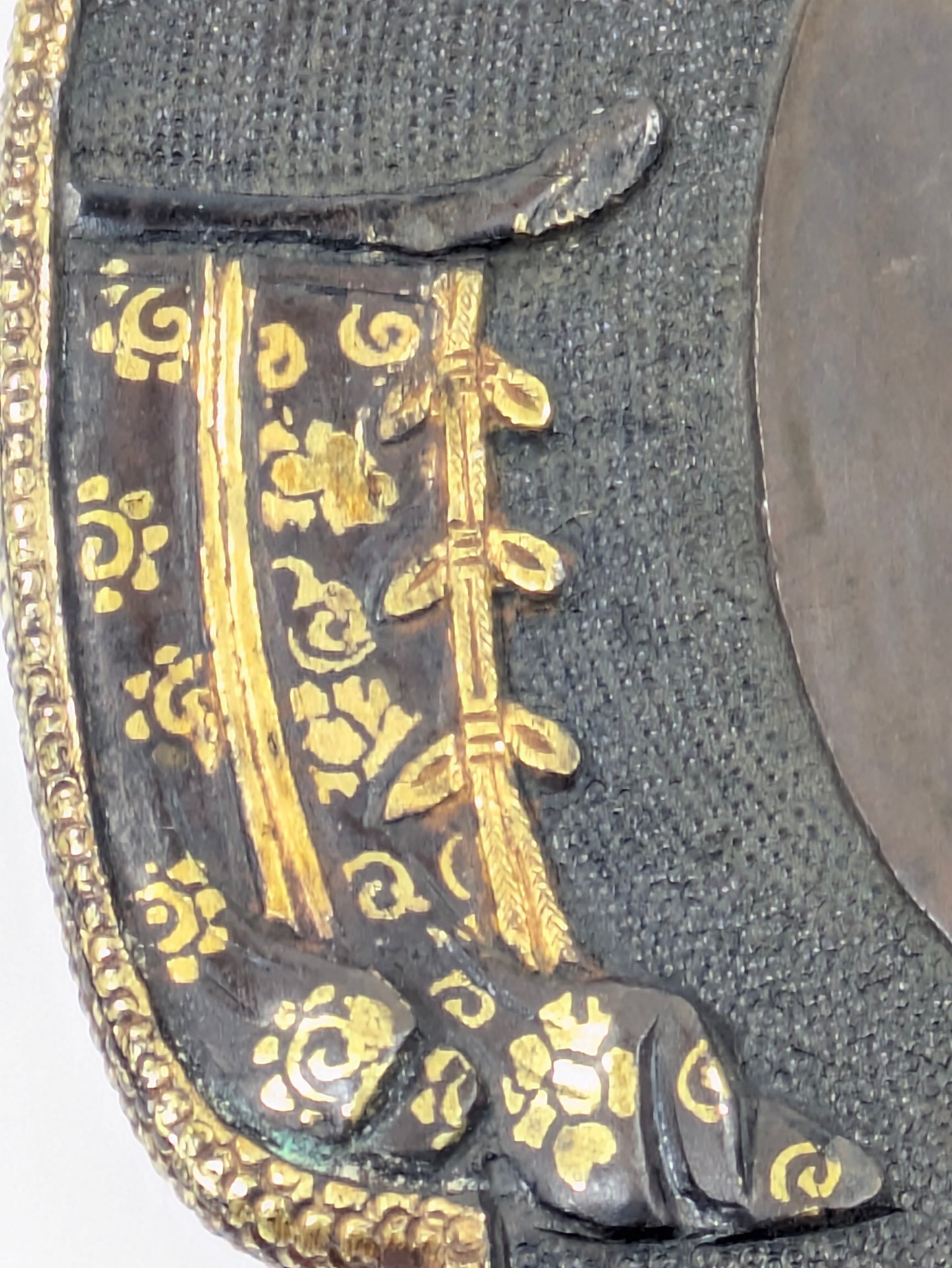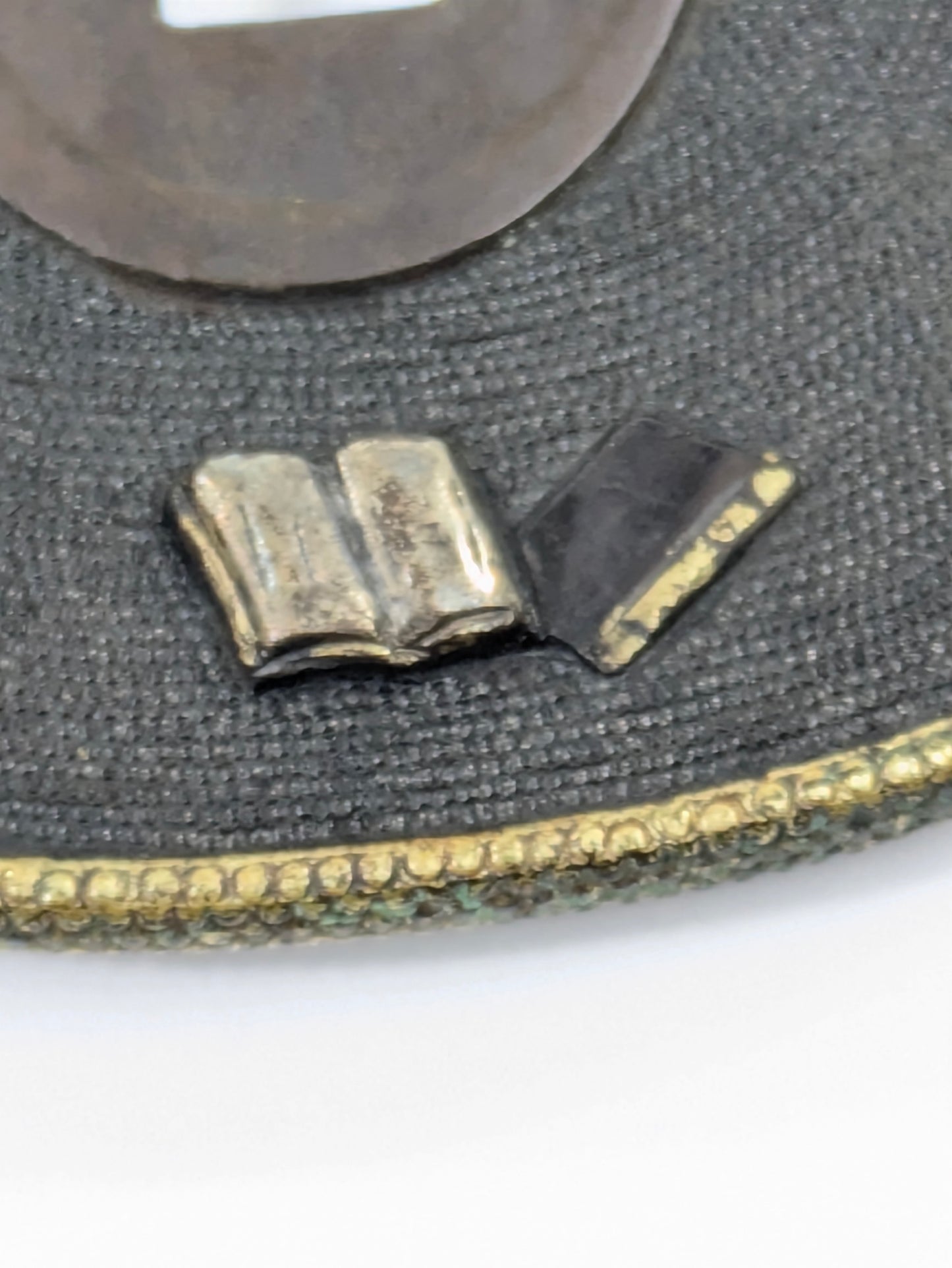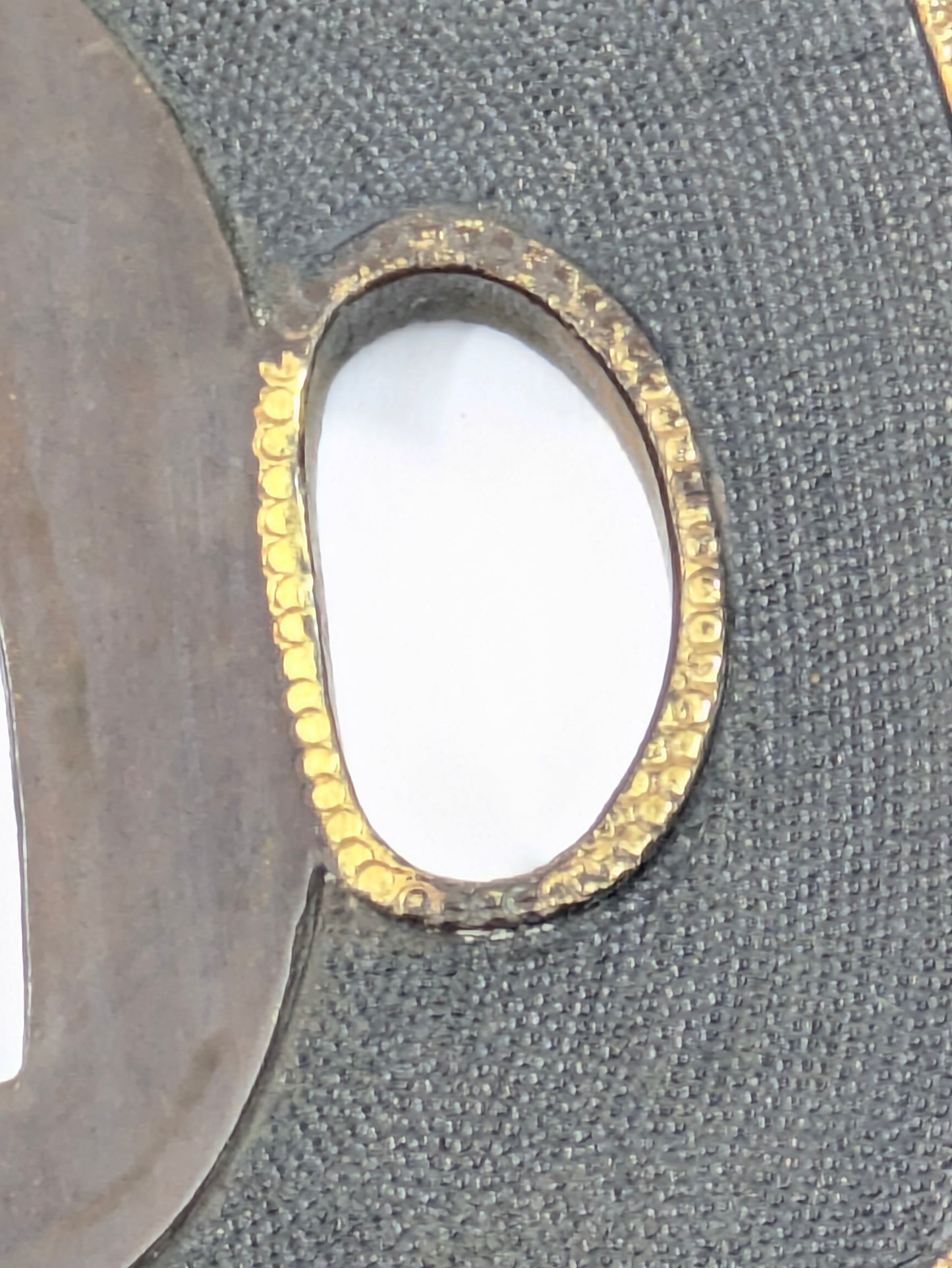Japanese Edo Period Iron Tsuba Genji Monogatari Scene Gold Silver Inlay LS193
Japanese Edo Period Iron Tsuba Genji Monogatari Scene Gold Silver Inlay LS193
Couldn't load pickup availability
Antique Japanese Iron Tsuba Depicting Genji Monogatari Court Scene
Japan, Edo period (17th–18th century)
An elegant Edo-period iron tsuba richly inlaid with gold and silver, depicting a literary theme from The Tale of Genji (Genji Monogatari). A court lady is shown seated at her desk, brush poised as she composes poetry. Her robes are heightened with gilt inlay, while a curtain behind her evokes the seclusion and refinement of Heian interiors. Scattered books, rendered in silver and gold, complete the scene and underscore the literary theme.
Genji Monogatari, written in the 11th century by the noblewoman Murasaki Shikibu, was revered in Edo-period culture as a model of courtly elegance and refined sentiment. Sword fittings with Genji imagery embodied the samurai ideal of cultivating both literary and martial excellence.
The rim and hitsu-ana are bordered in gilt with finely dotted beading, completing the frame of this miniature scene. This guard demonstrates not only fine craftsmanship but also the Edo-period fascination with reviving classical Heian themes in the decorative arts.
Details:
-
Origin: Japan
-
Period: Edo (17th–18th century)
-
Material: Iron with gold and silver inlay
-
Motifs: Court lady writing, curtain, books (Genji Monogatari theme)
-
Shape: Mokko-gata (four-lobed)
-
Condition: Very good, light age wear to gilt inlay, patina stable
- Dimensions: L 3in, W 3in, D 1in

